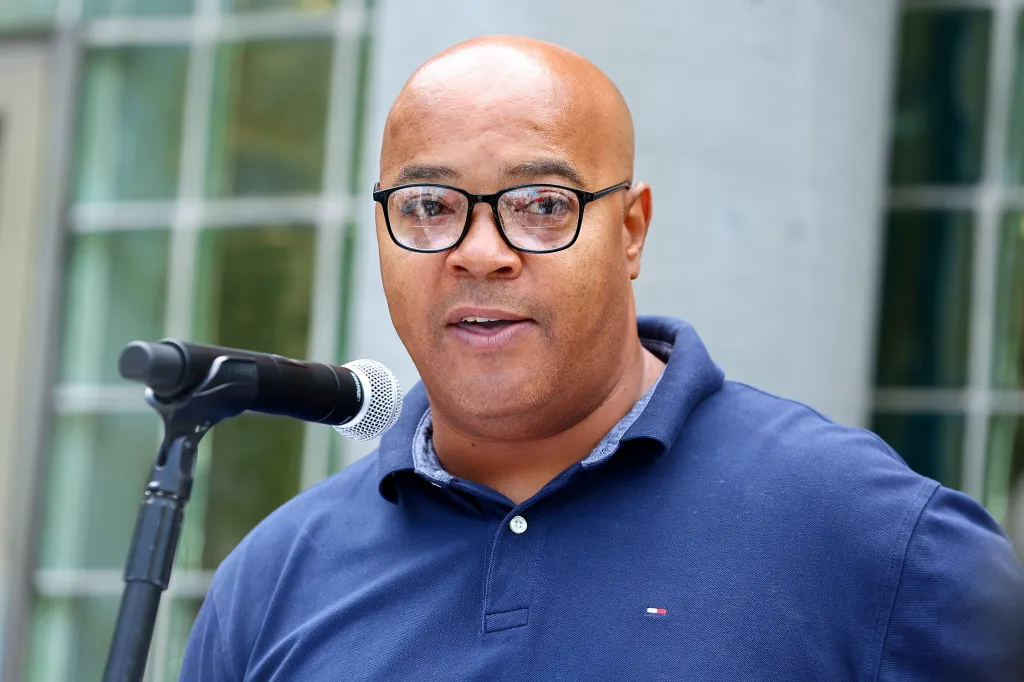New York Considers Boosting Inmate Support: Proposal to Provide $2.6K Upon Release
In a significant legislative move, New York State is currently exploring a groundbreaking bill that could reshape the post-release landscape for former inmates.
The proposed legislation, championed by Democrats Assemblyman Eddie Gibbs and Senator Kevin Parker, seeks to substantially increase the “gate money” provided to individuals leaving state prisons from the current $40 to an impactful $2,550 over six months.
The primary goal of this initiative is to address the financial challenges faced by released inmates, with the broader objectives of promoting stability and reducing the likelihood of re-offense.
This proposed legislation comes at a time when departing inmates in New York receive a nominal $40 as “gate money,” a sum derived from their earnings during incarceration, often working for less than 65 cents an hour.
The envisioned bill, known as the “Gate Money Program,” is designed to allocate $25 million from the state general fund to provide ex-convicts with $425 per month for up to six months, with adjustments for inflation annually.
While supporters of the bill, including the Center for Employment Opportunities, argue that the current system is outdated and insufficient for meeting basic needs, critics express concerns about providing unrestricted cash rewards to individuals who have committed crimes.

State Senator George Borrello, a Republican, has criticized the proposal as “criminal coddling,” accusing the ruling Democrats of prioritizing criminals over victims and law-abiding citizens. This ideological divide underscores the broader debate on criminal justice policies within the New York political landscape.
An interesting facet of the legislative proposal is the unique perspective brought by Assemblyman Eddie Gibbs, one of the bill’s co-sponsors. Having served over three years in prison for manslaughter as a teenager, Gibbs emphasizes the importance of providing financial assistance to individuals re-entering society.
He contends that the proposed support goes beyond monetary aid, aiming to restore dignity and stability while offering a second chance to those seeking redemption.
From an analytical standpoint, the Parker/Gibbs bill introduces a significant departure from the existing “gate money” concept. It recognizes the need for more substantial financial support during the critical post-release period, allowing individuals to cover housing, transportation, and other essential expenses, potentially reducing the economic strain that often contributes to recidivism.
One of the notable aspects of the proposed bill is the absence of a specified method for tracking how the funds would be spent. While supporters point to an independent evaluation of the existing payment program, which suggests that the funds are primarily used for necessities, critics argue that a lack of oversight could potentially lead to the misuse of taxpayer dollars.
As the proposed bill progresses through the legislative process in Albany, the debate over providing substantial post-release financial support to inmates continues to divide lawmakers and citizens alike. The potential impact on reintegration, reduction of recidivism, and the overall safety and prosperity of communities remains at the forefront of discussions.
Related News:
- Latest Quarterback News Puts Cowboys’ Misstep in Spotlight
- Browns Head Coach Stefanski Drops Bombshell: Bad News for Joe Flacco Fans!
- Breaking News: TSMC Makes Historic Move with First Plant Opening in Japan
The outcome of this legislative initiative could set a precedent for other states grappling with similar challenges in their criminal justice systems.

